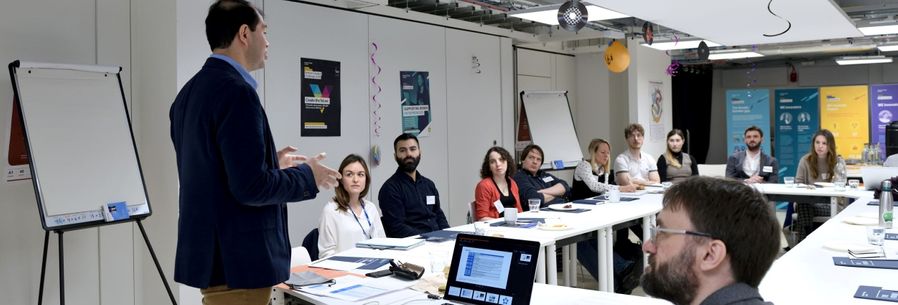Environmental Research Group - Advancing Policy and Research Connections on Environment and Health
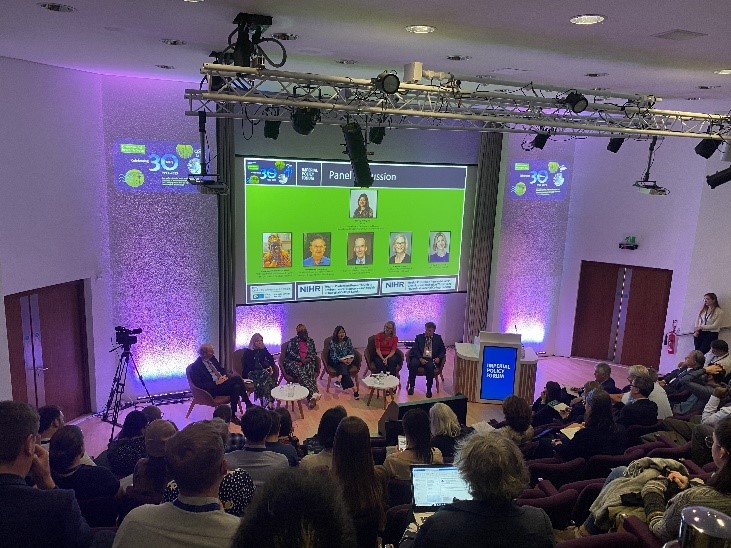 In 2023, the Environmental Research Group (ERG) celebrated its 30th anniversary as Imperial’s pioneering research group dedicated to advancing environmental research, and a leading provider of air and water quality information and research in the UK.
In 2023, the Environmental Research Group (ERG) celebrated its 30th anniversary as Imperial’s pioneering research group dedicated to advancing environmental research, and a leading provider of air and water quality information and research in the UK.
Initially comprised of three teams and 20 individuals, ERG has expanded to encompass nine specialized teams of over 100 experts, whose work combines interdisciplinary and innovative science, toxicology and epidemiology to determine the impacts of air and water pollution on health.
In partnership with the Imperial Policy Forum, ERG organized a two-day symposium and seminar series, focused on the theme "Environment and Health Challenges in a Changing World." These joint events served as platforms to showcase major achievements in air pollution research, discuss the influence of climate change on air and water quality, and explore future challenges and opportunities for ERG and its collaborators.
During the symposium, the Mayor of London, Sadiq Khan, and Professor Frank Kelly, Director of ERG, co-hosted a session on the impact of Indoor and Outdoor air pollution on health, followed by thematic presentations featuring International academics. The seminar series informed the production of six briefing papers expanding on links between air quality and health.
This event series laid the ground for two important initiatives that are being delivered in 2024. Firstly, ERG received an invitation for Imperial College to became a co-organiser of an International 2024 Air Pollution and Health conference, RespiraMi, featuring the Mayor of Milan. The event, held in Milan in February 2024, was exceptionally well received and the scientific discussions received high praise from both the in-person attendees and those participating online. The event garnered extensive media coverage, both press and TV. As a result of this event, ERG have been invited to co-organise the 2026 conference, and to explore further opportunities to collaborate with C40.
The ERG 2023 programme also led to a new partnership opportunity with Emission Analytics. ERG, supported by the Policy Forum, are the co-organisers of a series of four conferences being organised by Emissions Analytics in 2024 in Europe and the USA, focused on Tyre Emissions and Non-Road fuels. These important 2024 initiatives are providing valuable opportunities for ERG to expand our impact and reach beyond London and the UK.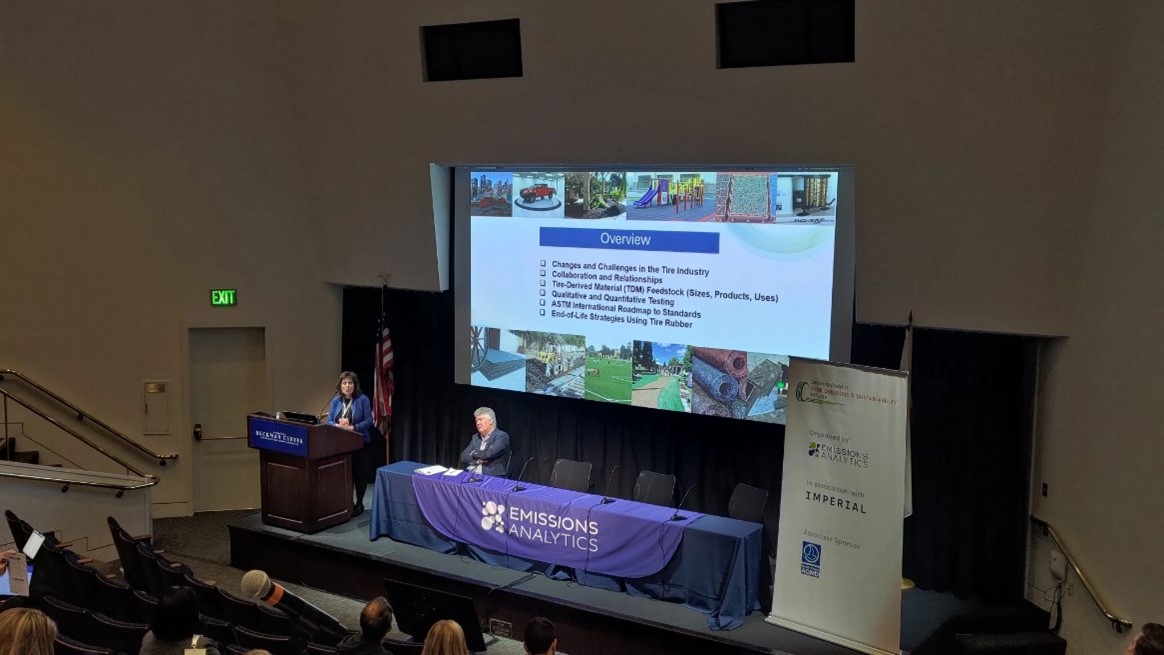
Caption: Prof. Frank Kelly, Head of the Environmental Research Group, chairing the Tyre Wear Conference at the US National Academy of Science and Civil Engineering
Working with Imperial Policy Forum supported ERG in their internal capacity building, and networking, while fostering stronger connections within the scientific community, and between scientists and policymakers.
This partnership was also successful in supporting ERG’s expertise-building on research dissemination and public engagement, and crucial to positioning the group even more visibly in the international air pollution community by fostering greater confidence in collaborating with senior public officials and reaching previously unfamiliar audiences.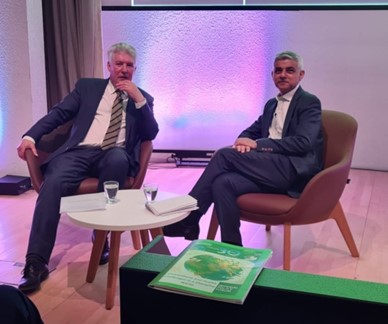
Caption: Prof. Frank Kelly, Head of the Environmental Research Group, and Sadiq Khan, Mayor of London
MRC Centre for Infectious Diseases – Accelerating evidence translation into global health policy
The Medical Research Council Centre for Global Infectious Disease Analysis, based at Imperial, is an international centre of excellence for research and training on the epidemiological analysis and modelling of infectious diseases. It undertakes applied, collaborative and policy translation work with national and international agencies to support planning and response operations against infectious disease threats.
As a World Health Organisation (WHO) Collaborating Centre for Infectious Disease Modelling, the MRC Centre worked with the Imperial Policy Forum to expand and amplify world-leading dialogue between science and global health policy.
The IPF supported the MRC Centre’s engagement with the WHO’s Hub for Pandemic and Epidemic Intelligence, launched in 2022 and responsible for strategically steering the WHO’s approach for the use of analytical tools in the face of pandemic and epidemic threats. This was done through research and travel funding to allow Imperial staff to participate in strategy and working group meetings in Berlin, enabling the development of a collaboration pipeline mixing hybrid and in-person interactions with the Hub.
This partnership also resulted in a workshop in Berlin, co-organised by Imperial and the WHO Hub, on disease outbreak analytics, building on lessons learned during the Covid-19 pandemic. This workshop produced an official report on best practices in advanced analytics to inform decision-making during public health emergencies.
Imperial has become one of the leading institutions actively participating in the Hub’s expert networks, including the WHO Hub for Pandemic and Epidemic Intelligence Speaker Series, and a key institutional partner in developing present and future evidence in tight alignment with the WHO’s priorities, including a comprehensive literature review of nine pathogens identified as most likely to cause a future epidemic or pandemic.
Finally, working with Imperial Policy Forum has contributed to the MRC Centre for Global Infectious Disease Analysis research team’s publications of one paper on Marburg virus disease; two preprints on Ebola virus disease and Lassa fever, respectively, and the extraction of relevant data for SARS-CoV-1, with extractions for zika virus currently in place.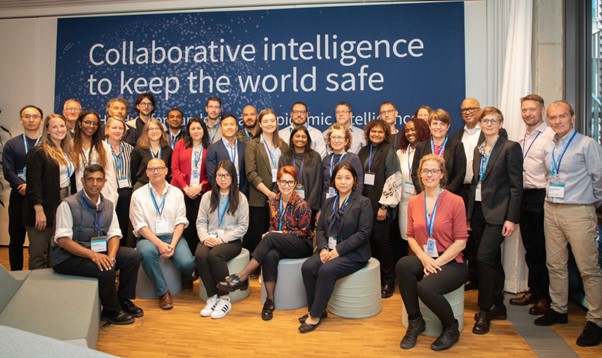
Caption: A group of academics from Imperial’s MRC Centre for Infectious Diseases and WHO representatives meeting in Berlin
Centre of Excellence for Active Security and Resilience (CARS) – Setting the strategic vision for an Imperial Centre on Societal Resilience and Security
Imperial’s Institute for Security Science and Technology (ISST) focuses on scientific research, education and innovation for a secure and resilient world. It is the home of Imperial’s new Centre of Excellence for Active Security and Resilience (CARS), dedicated to laying the groundwork and establishing the knowledge base to bolster society's resilience and security to interconnected and transnational crises such as pandemics, climate change, malicious attacks or energy shocks.
A recent United Nations Office for Disaster Risk Reduction (UNDRR) Report states that “the world is on track for more than one disaster a day by 2030, […] we are to be hit harder by more catastrophes colliding in an interconnected world”. It underscores the pressing reality that we are navigating a world where catastrophes increasingly intersect, creating a web of interconnected challenges. CARS is dedicated to laying the groundwork and establishing the knowledge base that will enable society to meet these challenges head-on.
CARS defines resilience as “the ability of a society exposed to hazards to resist, learn from, absorb, accommodate, adapt to, transform and recover from the effects of a hazard in a timely and efficient manner, including through the preservation and restoration of its essential basic structures and functions through risk management’’. CARS relies on interdisciplinary, systems thinking and complexity research to foster adaptation, learning from adversity, and application of those lessons into policy recommendations bringing together academics from across the college.
The ISST requested funding from Imperial Policy Forum in 2021 to develop a white paper on the need and potential for a resilience-focused entity at Imperial, following this, the Policy Forum has supported the ISST with further funding to bring in a dedicated staff member for making the centre an operational reality. Today, following the announcement of the creation of CARS, the Forum is supporting the Centre in developing its strategic vision and working with other stakeholders to strengthen its impact potential.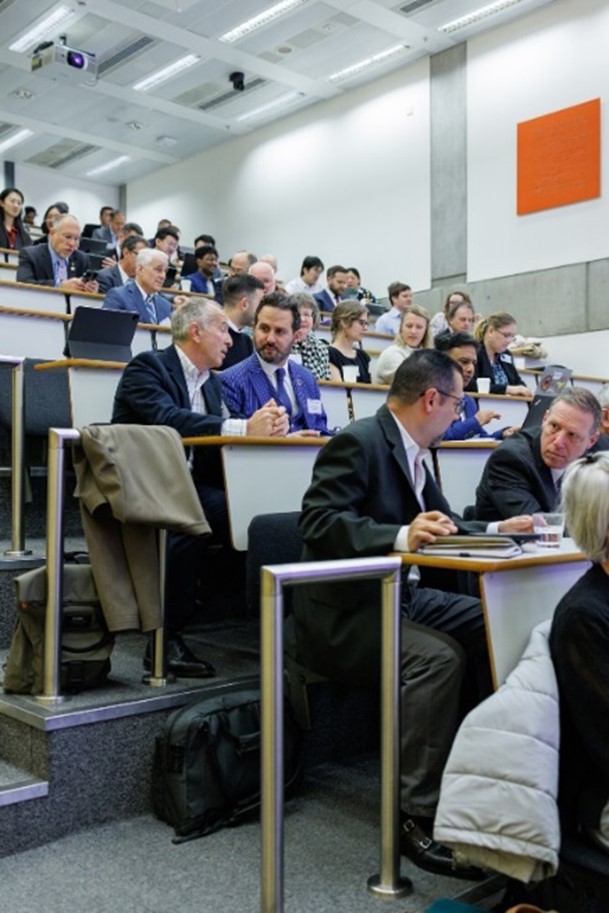
Caption: Groups of policymakers and Imperial academics working together at a workshop
Working with the Forum enabled a series of meetings and events that has helped CARS build and expand its networks with relevant stakeholders across the UK, among industry, business and government partners. The support has been key to amplify CARS’ position as a recognised voice for thought leadership in the UK and on a global level in societal resilience.
The collaboration between IPF and ISST has bolstered CARS' ability to pursue research funding and has paved the way for two significant initiatives. Firstly, the launch of a new community resilience project in partnership with the Greater London Authority. Secondly, the establishment of an annual Global Resilient Renewable Society Summit, bringing together 100+ participants from various sectors such as government, academia, practitioners, public interest groups, and industry organizations. The collective aim is to explore innovative strategies, tools, and policies to enhance societal resilience across social, environmental, physical, and cyber domains in the face of escalating challenges.
In today's intricate global landscape, marked by intertwined complexities, the need to unite and address these challenges collectively is more urgent than ever. The annual summit will not only focus on enhancing critical infrastructure against black sky hazards but also facilitate broader discussions on policy, education, and collaborative efforts vital for societal resilience at individual and global levels.
CARS aims to shape a future where resilience and security are not just buzzwords but fundamental attributes of our society, ensuring that we are well-prepared for the challenges that lie ahead.
To get in touch, please contact Anna Friman at: resiliencecentre@imperial.ac.uk 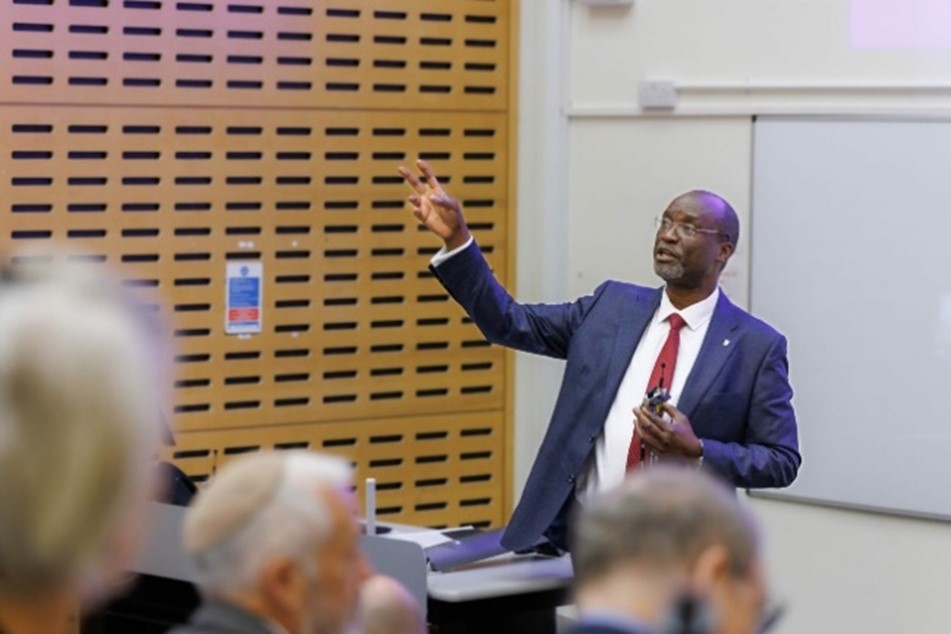
Caption: Prof. Washington Ochieng, Interim Director of the Institute for Security Science and Technology, giving a presentation
